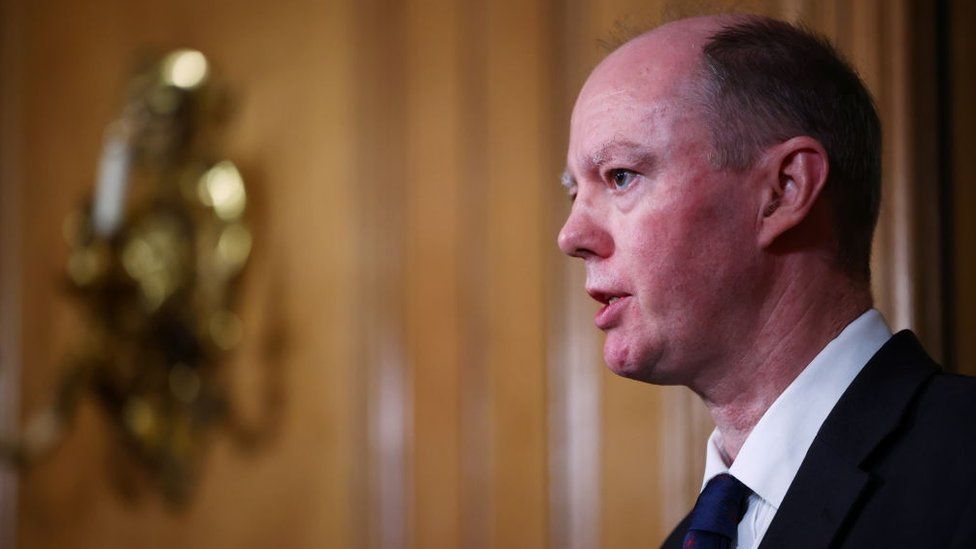55 minutes ago
About sharing
Sir Chris Whitty, the government’s most senior medical adviser in the pandemic, will give evidence to the Covid inquiry this morning.
It comes a day after former chief scientific adviser Sir Patrick Vallance said the pair had differing views over when to lock down.
Both men became household names after frequently appearing beside the prime minister at Downing Street’s daily televised Covid briefings.
On Monday, Sir Patrick told the inquiry he had wanted to introduce restrictions more quickly than Sir Chris in March 2020, before the first lockdown, and in September 2020, before the second.
He said Sir Chris had “legitimate” concerns about the broader consequences of restrictions on people’s health, given his public health remit.
“He was concerned … that there will be indirect causes of death due to effects on the NHS, that there would be indirect harms due to people isolating, mental health, loneliness …. and that there will be indirect, long-term consequences due to the economic impact creating poverty, which is a major driver of health.”
Sir Patrick said he “didn’t have exactly the same worry”, and pushed for an earlier lockdown, but it was “useful and helpful” to debate these points.
Sir Chris was appointed England’s chief medical officer and the UK government’s chief medical adviser three months before the pandemic hit. He was soon at the centre of handling the biggest public health crisis the UK had faced in decades.
The infectious disease epidemiologist, who still works frontline medical shifts at a London hospital, has already given evidence to the inquiry when it was considering how well prepared the UK was for a pandemic.
Appearing in June, Sir Chris told the inquiry lockdowns were a “big new idea”. The prospect of legally compelling people to stay at home had not been thought about before 2020. It was, he said, a “very radical thing to do”.
Sir Chris said it would have been “very surprising” if any official committee of scientists had considered such a measure without being asked to do so by ministers.
It was an “extraordinarily major social intervention with huge economic and social ramifications”, he said.
Elsewhere, Sir Chris also defended the government’s scientific advisory group Sage, which he co-chaired during the pandemic.
He said it would have been too “unwieldy” if lots of experts were added to it, and that the group should only focus on science. The economic and societal consequences of responding to a pandemic, he argued, should be looked at separately.
Sir Chris said one of the UK’s key weaknesses was the inability to scale up testing quickly. He said the UK could learn from countries such as South Korean and Canada, which had invested heavily in public health after outbreaks of other viruses, such as Mers and Sars.
But he said he wouldn’t have expected any pandemic planning to have foreseen a virus like Covid. A flu pandemic had been thought much more likely.
One of the key messages was that the UK needed to plan for a strengthened health response to a range of potential infections.
The current stage of the inquiry is examining the UK government’s response during the first wave of the virus.
Sir Chris will appear at the Covid inquiry at 10:00 GMT. We’ll have live coverage on the BBC News website.
Related Topics
7 hours ago
22 June
